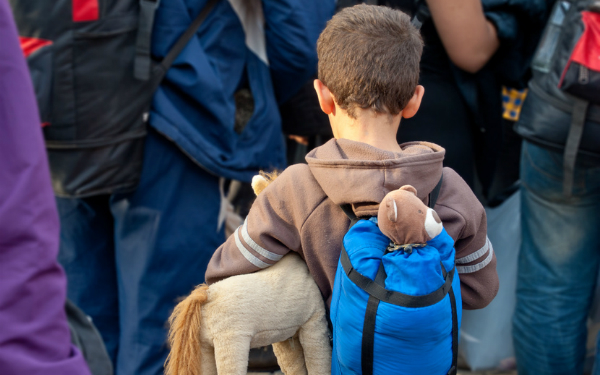
Story updated 2 September
Councils may be mandated to take a defined share of unaccompanied children and young people to relieve pressures on port authorities.
The proposal – put out for consultation today alongside others – follows Kent council’s declaration earlier this month that it could accept no more unaccompanied children into its care, after a large increase in numbers crossing the English Channel this year.
As a result, the Border Force had to take responsibility for children and young people arriving in Kent, holding them temporarily in an intake centre until other councils could take responsibility for them.
The Home Office and Department for Education (DfE) said that 60 councils had agreed to provide over 270 places to children and young people arriving in Kent in recent weeks.
However, immigration minister Chris Philp and children’s minister Vicky Ford said a more efficient and fairer way had to be found to share responsibility for unaccompanied children between councils.
Transfer scheme impact
This was the purpose of the voluntary national transfer scheme, set up in 2016, to transfer children and young people from authorities with high numbers of unaccompanied children (above 0.07% of their local child population) to those with lower numbers.
However, while 1,054 have been transferred under the scheme, this has not sufficiently reduced pressures on Kent, other port authorities, such as Hillingdon, West Sussex, Portsmouth and Southampton, and Croydon, which has an asylum intake centre.
Councils have argued that the rates paid by the Home Office for the care of unaccompanied children, and care leavers, have been insufficient to incentivise non-port authorities to take them into their care.
‘Lack of incentive’ to share responsibility
In June this year, the Home Office made its third increase in rates in four years. However, the Association of Directors of Children’s Services said its decision to raise daily rates for children for authorities above the 0.07% threshold, rather than for those below, meant no incentive was created to share out responsibility.
The consultation launched today puts mandating the national transfer scheme as one option, alongside a voluntary rota system between regions, which would enable councils to plan for the number of unaccompanied children they would be caring for.
Ford said: “Unaccompanied asylum-seeking children have often suffered deep trauma and I am extremely grateful to all local authorities who have gone above and beyond to care for these children and young people during these challenging times.
“In order to make sure these children get appropriate care, all local authorities need to share responsibility for looking after them. This consultation will help us get this right, making sure the system is fair for all.”
Regional rota ‘better option’
Responding to the proposals, ADCS president Jenny Coles said: “Any new arrangements need to be sustainable and have children and young people’s best interests at heart; we believe that the proposal in the consultation for a regional rota system has a better chance of achieving a long term equitable solution.
“However, a regional rota system is not a long term solution to the long standing issues that government must address, including placement sufficiency, funding levels including funding for care leavers, age assessment, and more timely immigration decision-making for children. ADCS will be responding formally to the consultation after discussions with our members.”


 Bournemouth, Christchurch and Poole
Bournemouth, Christchurch and Poole  Hampshire County Council
Hampshire County Council  Lincolnshire County Council
Lincolnshire County Council  Norfolk County Council
Norfolk County Council  Northamptonshire Children’s Trust
Northamptonshire Children’s Trust  South Gloucestershire Council
South Gloucestershire Council  Wiltshire Council
Wiltshire Council  Wokingham Borough Council
Wokingham Borough Council  Children and young people with SEND are ‘valued and prioritised’ in Wiltshire, find inspectors
Children and young people with SEND are ‘valued and prioritised’ in Wiltshire, find inspectors  How specialist refugee teams benefit young people and social workers
How specialist refugee teams benefit young people and social workers  Podcast: returning to social work after becoming a first-time parent
Podcast: returning to social work after becoming a first-time parent  Podcast: would you work for an inadequate-rated service?
Podcast: would you work for an inadequate-rated service?  Family help: one local authority’s experience of the model
Family help: one local authority’s experience of the model  Workforce Insights – showcasing a selection of the sector’s top recruiters
Workforce Insights – showcasing a selection of the sector’s top recruiters 

 Facebook
Facebook X
X LinkedIn
LinkedIn Instagram
Instagram
It seems that Kent, Hillingdon, West Sussex, Portsmouth, Southampton and Croydon are viewed by many other English councils in a simlar way that Italy and Greece are viewed by many other European Union countries!
Children being held in an ‘intake’ centre is dreadful.
60 Councils agreeing to take 270 children is on 4.5 each!
These are children who have suffered trauma.